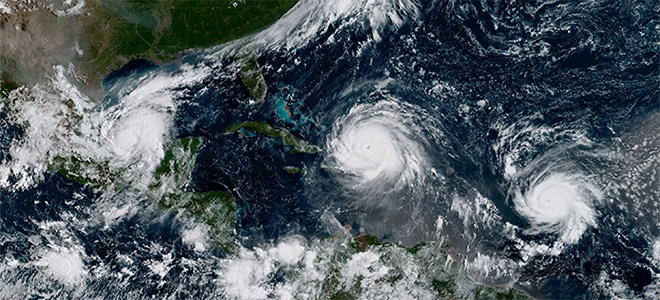
by Lisa Dilling, Rebecca Morss, and Olga Wilhelmi
Journal of Extreme Events (2018)
Vol. 4, No. 3
Extreme events often bring unexpected situations and impacts, as the sequence of hurricanes and other natural disasters in summer and fall 2017 demonstrated. To reduce the risks associated with such events, many have focused on reducing uncertainty in prediction or reducing vulnerability. Although both are worthy goals, we suggest that the research community should also be focusing on the nature of surprise itself, to investigate the role of surprise in extreme events and its implications. Surprise arises when reality differs from people’s expectations. Multiple factors contribute to creating surprise, including the dynamic nature of natural and human systems, the limitations of scientific knowledge and prediction, and the ways that people interpret and manage risks, not to mention climate variability and change. We argue that surprise is an unavoidable component of weather and climate disasters — one that we must acknowledge, learn to anticipate, and incorporate into risk assessment and management efforts. In sum, although it may seem paradoxical, we should be learning how to expect surprise. Read more …

